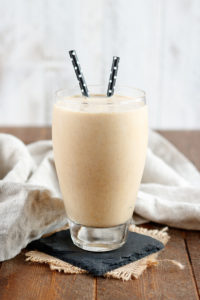New Jersey Bariatric Center Patients Celebrate Weight Loss Accomplishments at Annual Sweet Success Gala
The annual event marks the weight loss accomplishments of patients who have had gastric bypass, gastric sleeve, and gastric balloon procedures
SPRINGFIELD, N.J. – New Jersey Bariatric Center, the state’s leading weight loss surgery practice, recognized the weight loss victories of their bariatric surgery patients at its annual Sweet Success Gala, attended by more than 100 patients who’ve had gastric sleeve, gastric bypass and gastric balloon, their guests, and the bariatric surgeons and staff.
“For the past 11 years, we’ve been coming together to celebrate our patients’ successes,” said New Jersey Bariatric Center founder Dr. Ajay Goyal, who is also director of Bariatric Surgery at Atlantic Health System’s Overlook Medical Center in Summit, NJ. “It’s important to remember that success is not always a number on the scale. Sometimes it’s a small victory like being able to comfortably cross your legs or walk up stairs without losing your breath. Sometimes it’s a major health improvement like stopping diabetes medication. This night recognizes all the hard work patients have done and reminds them how far they’ve come since their decision to have surgery to aid in their weight loss.”
Each year the practice sends invitations to all patients who underwent weight loss surgery or a non-surgical weight loss procedure, such as gastric balloon at New Jersey Bariatric Center. There is dinner, dancing and the centerpiece of the event, the “Walk of Success,” during which patients walk a red carpet into the main room while their surgeons emcee. The doctors announce the name of the patient on the red carpet, the amount of weight lost, type of weight loss procedure and some of the “walker’s” weight loss milestones.
New Jersey Bariatric Center patient Crystal, who lost 100 pounds after having Gastric Sleeve surgery, was one of 40 patients who took the “Walk of Success.”
“I’m so grateful to the doctors, dietitians and staff at New Jersey Bariatric Center,” Crystal said. “I’m finally able to feel confident enough to walk into a room with all eyes on me. I am healthy and comfortable in my own skin. Because of weight loss surgery, I was able to focus on my happiness and my life with my husband and new baby girl.”

Weight loss surgery, which includes gastric bypass and sleeve gastrectomy (also known as gastric sleeve), alters the digestive tract to aid obese patients in losing weight. It is considered the most effective long-term solution for people suffering from obesity and related conditions like high blood pressure, sleep apnea and diabetes, according to the Society of American Gastrointestinal and Endoscopic Surgeons. To qualify for surgery, patients must have a body mass index (BMI) of 40 or 35 with an obesity related comorbidity, such as diabetes. New Jersey Bariatric Center doctors say the surgery is only a tool.
“Patients still must follow the guidelines we set forth for them by eating a healthy diet and exercising so they must be committed to change,” added Dr. Goyal. “In the end, the only thing most of my patients regret is not having done the procedure sooner.”
ABOUT NEW JERSEY BARIATRIC CENTER®
New Jersey Bariatric Center®, a medical and surgical weight loss center with offices in Springfield, Somerville, Hoboken, East Brunswick and Hackettstown New Jersey, helps patients achieve long-term weight loss success through the most advanced bariatric surgery procedures, including gastric sleeve, gastric bypass, LAP-BAND procedures. Led by the team of Ajay Goyal, MD, Glenn Forrester, MD, Angela Glasnapp, MD, and James Buwen DO, the New Jersey Bariatric Center’s approach to patient care has resulted in zero mortalities and a complication rate that is lower than the national average. For more information about bariatric surgery, visit www.NJBariatricCenter.com
###






